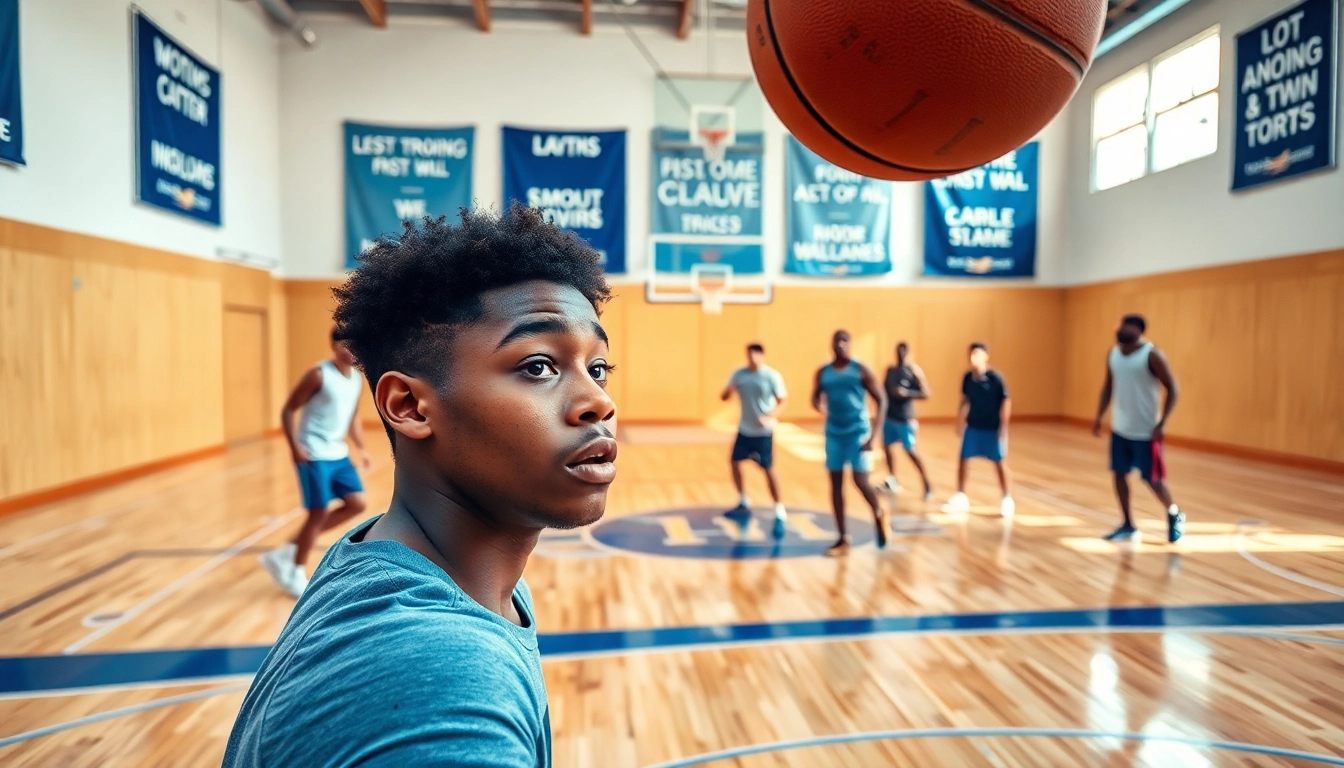
Understanding Basketball Training Programs
Basketball training programs are structured approaches designed to enhance a player’s skills, fitness, and overall performance on the court. These programs can cater to various levels of players, from beginners just learning the game to advanced athletes preparing for competition. With a growing number of resources and methodologies available, understanding what basketball training programs entail is crucial for players and coaches alike. Investing time in basketball training programs can aid in developing a well-rounded player who excels in both skill and physical conditioning.
What Are Basketball Training Programs?
Basketball training programs encompass a variety of methods and exercises aimed at improving a player’s abilities. These programs can focus on technical skill development, physical conditioning, and mental fortitude. They incorporate drills and exercises that enhance shooting, dribbling, passing, defense, and athleticism, tailored to fit the player’s experience and goals.
Key Components of Effective Training
Effective basketball training programs typically include the following components:
- Skill Development: Focusing on specific skills such as shooting accuracy, dribbling techniques, and defensive positioning.
- Physical Conditioning: Implementing strength training, cardio exercises, and flexibility routines to enhance athletic performance.
- Tactical Understanding: Teaching players game strategies, positioning, and decision-making skills during gameplay.
- Mental Preparation: Incorporating psychological strategies to improve focus, resilience, and competitiveness.
Benefits of Structured Training Programs
A well-structured basketball training program offers numerous benefits, including:
- Progress Tracking: Allowing players to monitor their improvement over time through measurable metrics.
- Injury Prevention: By emphasizing proper conditioning and technique, the risk of injuries can be reduced.
- Skill Acquisition: Focused training allows players to hone skills that are often overlooked in casual play.
- Mental Toughness: Structured training can improve a player’s mental game, preparing them for the pressures of competitive play.
Types of Basketball Training Programs
Individual Skill Development Programs
Individual skill development programs are tailored for personal growth. These programs emphasize one-on-one training sessions or small group drills, focusing on enhancing specific skills such as shooting, ball-handling, and footwork. Individual training allows coaches to identify and address a player’s weaknesses, making for a tailored approach that can significantly improve performance.
Team-Based Training Strategies
Team-based training programs focus on developing team chemistry and cohesion. They typically involve group drills and scrimmage situations to improve collective play dynamics. These programs help players learn to communicate effectively, understand team strategies, and develop the chemistry necessary for successful gameplay.
Online vs. In-Person Training Options
In today’s tech-driven world, players have the option of participating in online training programs or attending in-person sessions. Online programs offer flexibility and convenience, appealing to those with busy schedules or limited access to local training facilities. However, in-person training provides the advantage of real-time feedback and adjustments from coaches, alongside a competitive environment that may enhance learning.
Creating Your Own Basketball Training Regimen
Assessing Current Skill Levels
Before creating a training regimen, it is essential to assess the current skill levels of the player or team involved. This assessment can help in identifying strengths and weaknesses, enabling targeted practice. This could include personal performance evaluations, feedback from coaches, or video analysis of gameplay.
Setting Realistic Goals
Setting achievable goals is crucial in any training program. Goals should be specific, measurable, attainable, relevant, and time-bound (SMART). For example, instead of a vague aim like “improve shooting,” a player could set a goal to “increase free-throw percentage from 60% to 75% over the next three months.” Such goals provide a clear focus for training efforts.
Incorporating Diverse Drills
Diverse drills can keep players engaged while also improving various aspects of their game. Incorporating shooting drills, agility exercises, strength workouts, and basketball-specific skills will lead to well-rounded development. Variability in training keeps routines fresh, preventing boredom and maintaining motivation.
Maximizing Training Effectiveness
Tracking Progress and Adjustments
Regularly tracking progress is essential in any training program. By maintaining detailed logs of performance metrics such as shooting accuracy, jumping height, and overall fitness levels, players and coaches can identify areas of strength or deficiencies. Adjustments to the training regimen should be made based on this analysis, ensuring continued improvement.
Nutritional Support for Basketball Players
Nutritional support plays a crucial role in the effectiveness of a basketball training program. Proper nutrition can enhance performance, stamina, and recovery. Players should focus on a balanced diet rich in carbohydrates, proteins, and healthy fats, alongside proper hydration strategies. Knowledge of nutrition can make the difference during intense training sessions and competitive play.
Psychological Training and Mindset
A strong mental game is just as important as physical skills in basketball. Implementing psychological training methods can help athletes develop focus, confidence, and resilience. Techniques might include visualization exercises, mindfulness practices, or working with sports psychologists to instill a winning mindset.
Resources for Finding Quality Training Programs
Evaluation Metrics for Training Programs
When searching for quality basketball training programs, it is important to consider several evaluation metrics to ensure that they meet your needs. These metrics could include:
- Curriculum quality – Are the program’s drills and exercises backed by sound basketball principles?
- Instructor qualifications – Do the coaches have experience playing or coaching at a high level?
- Participant reviews – What feedback do past or current participants give about the program?
Top Online Resources and Communities
The internet provides a wealth of resources for both players and coaches. Websites like Breakthrough Basketball and platforms like Reddit allow players to connect with experienced coaches and other players. These communities can provide insights into effective training methods, drills, and tips for continuous improvement.
Choosing Certified Coaches and Trainers
When selecting a coach or trainer, it is essential to choose someone with credentials and experience that align with your goals. Certifications from organizations like the National Association of Schools of Basketball or coaching certifications through USA Basketball indicate a knowledgeable professional who can provide a quality training experience.